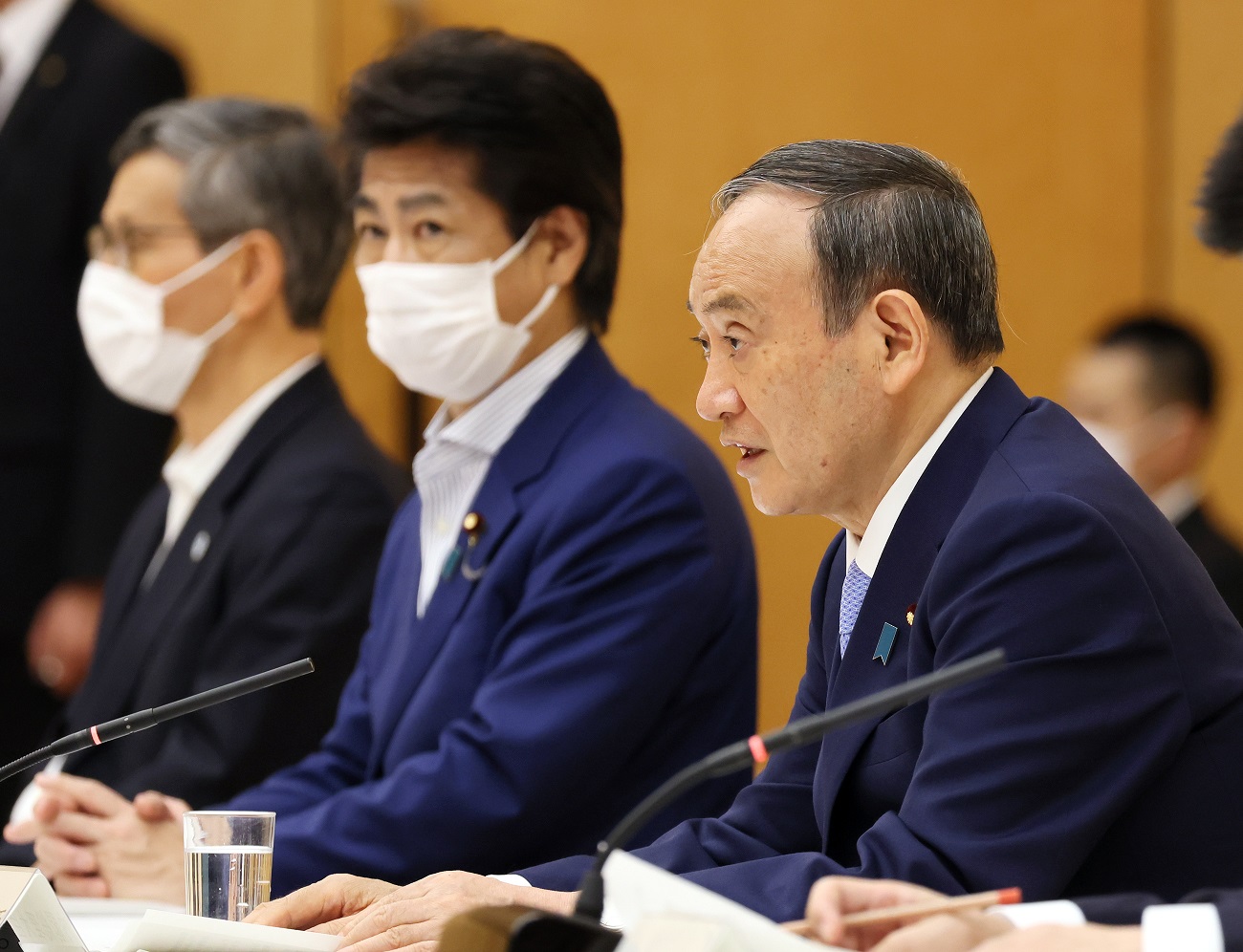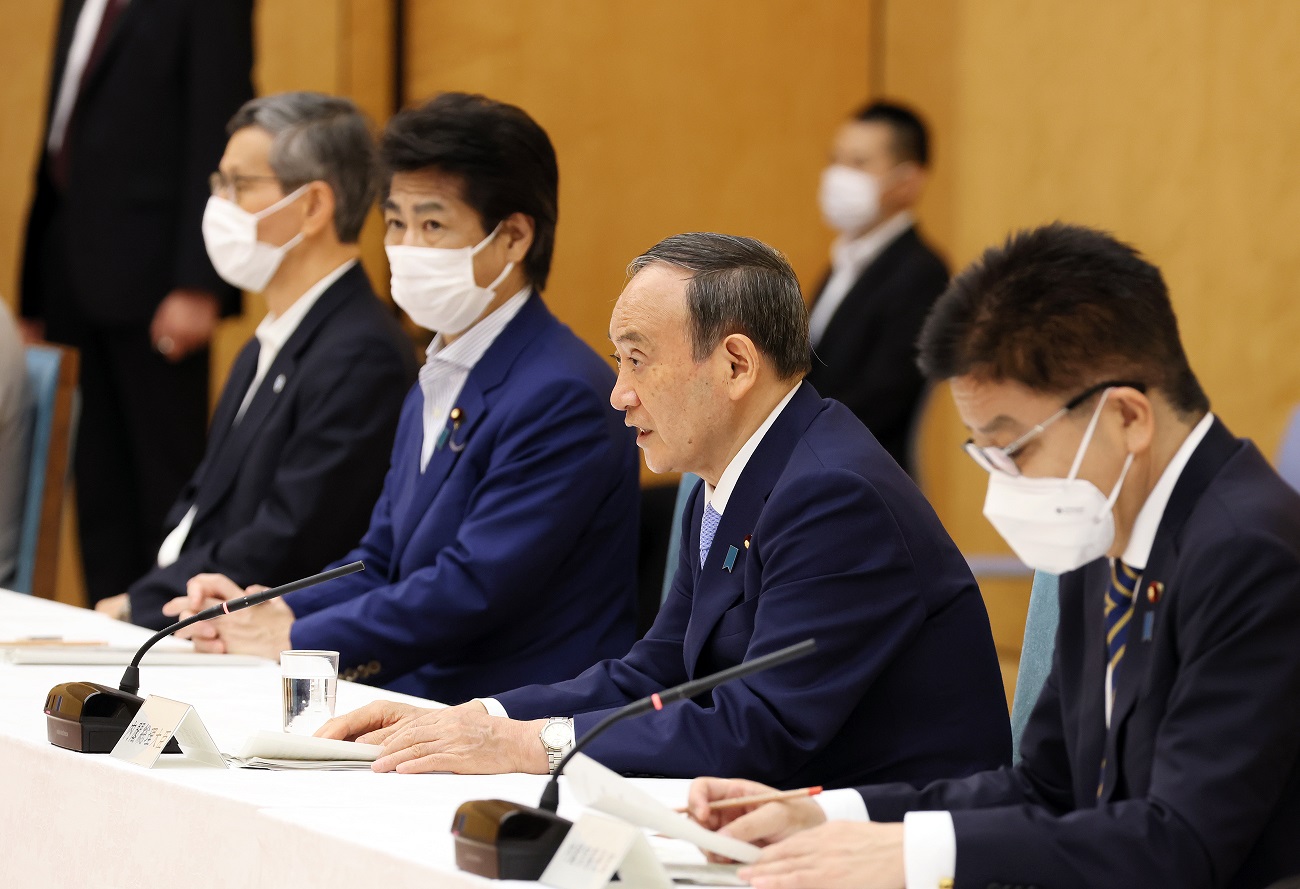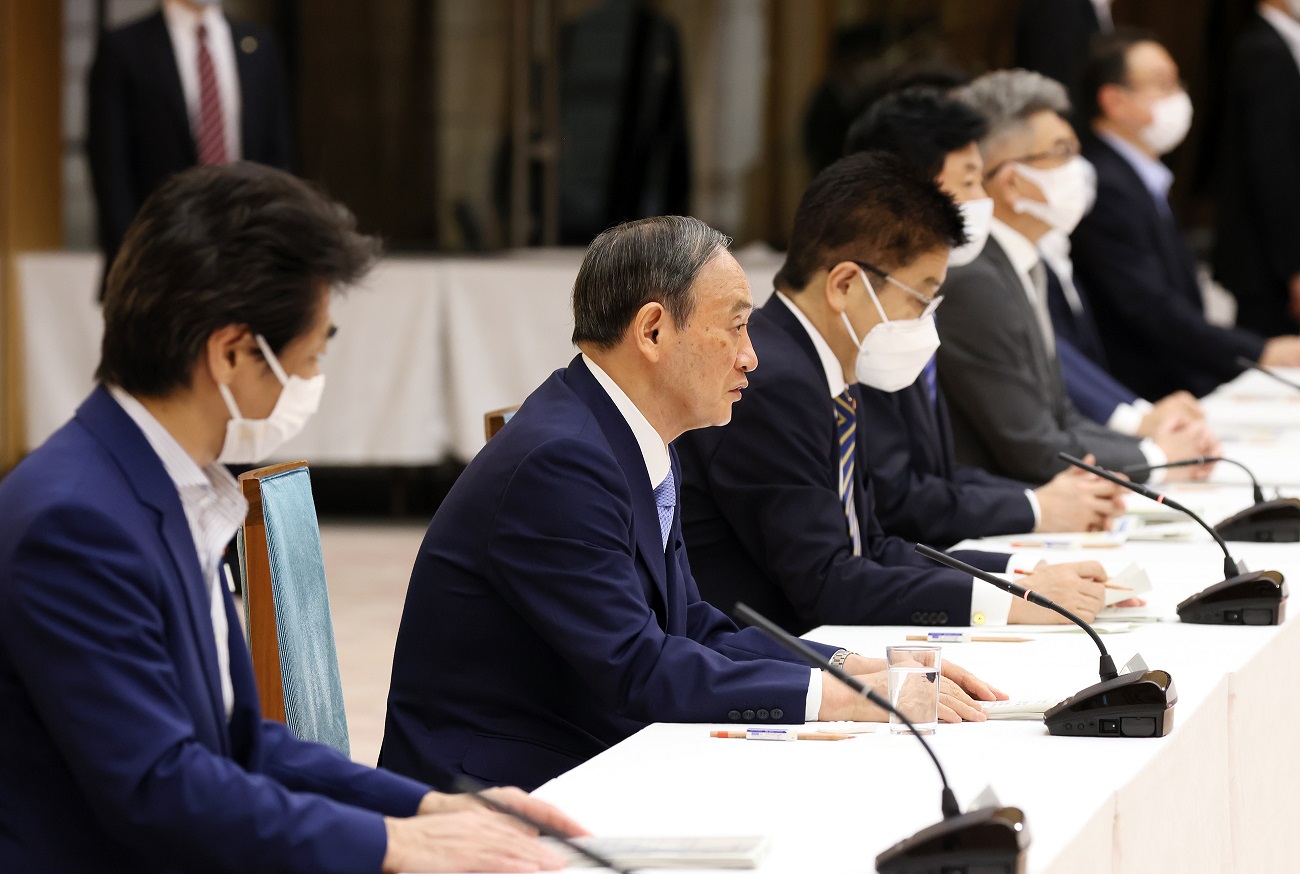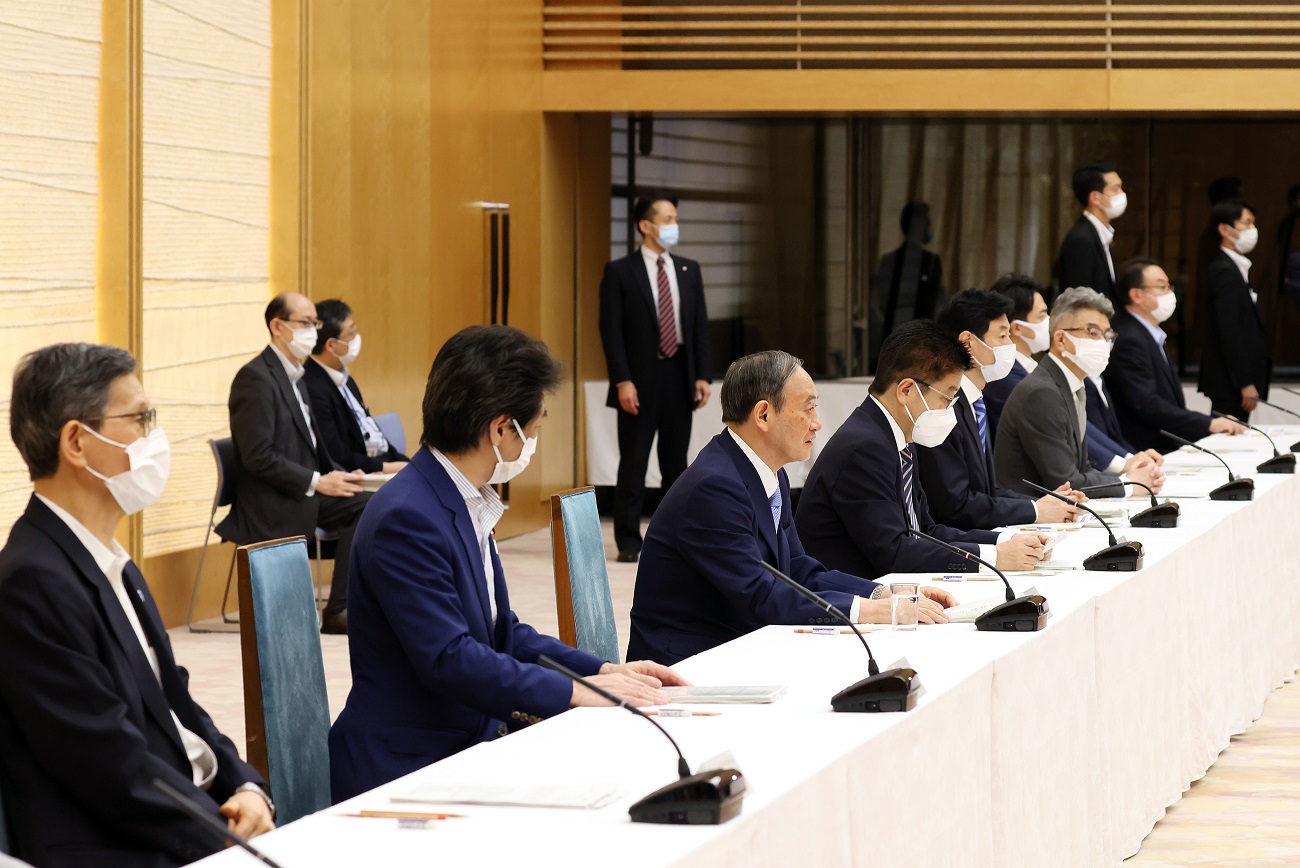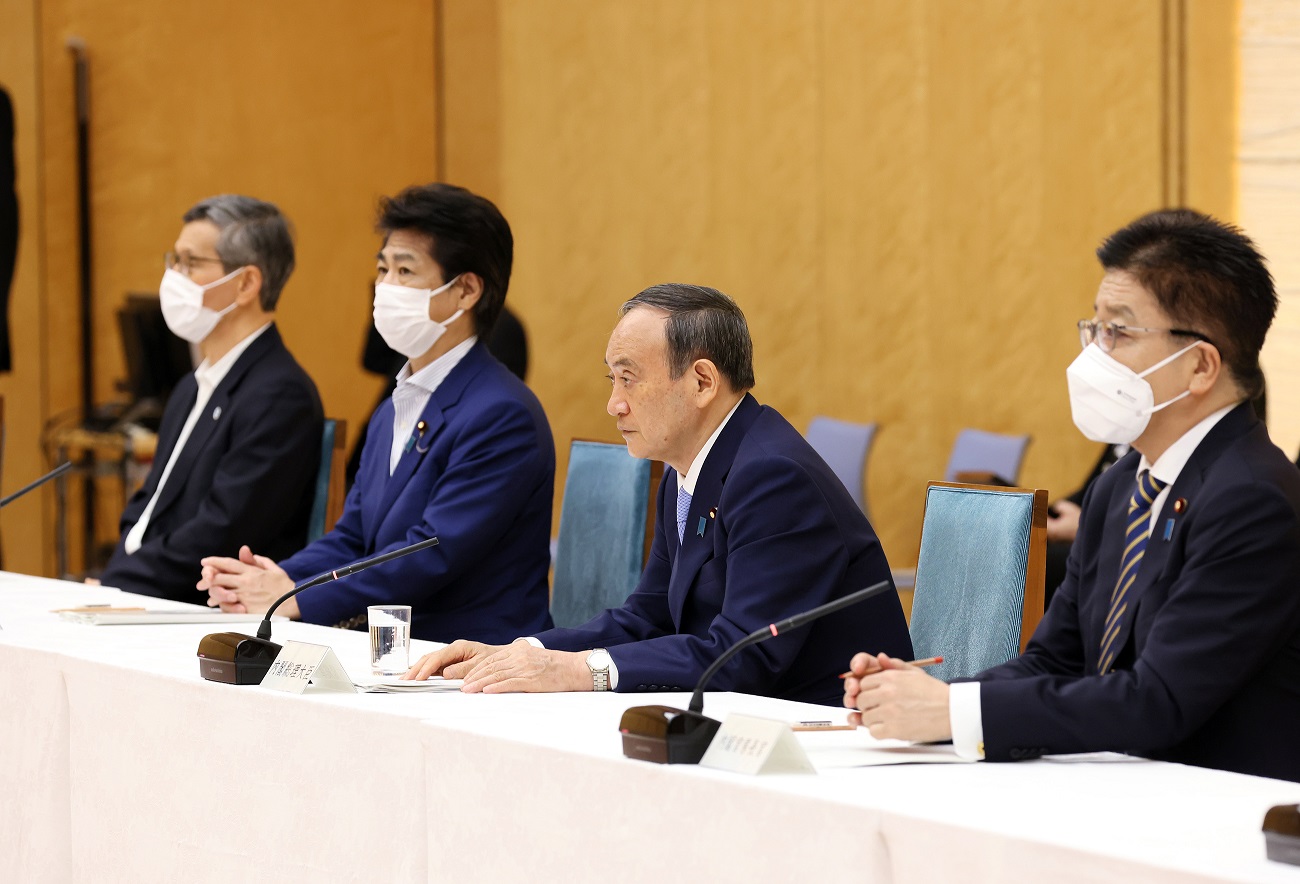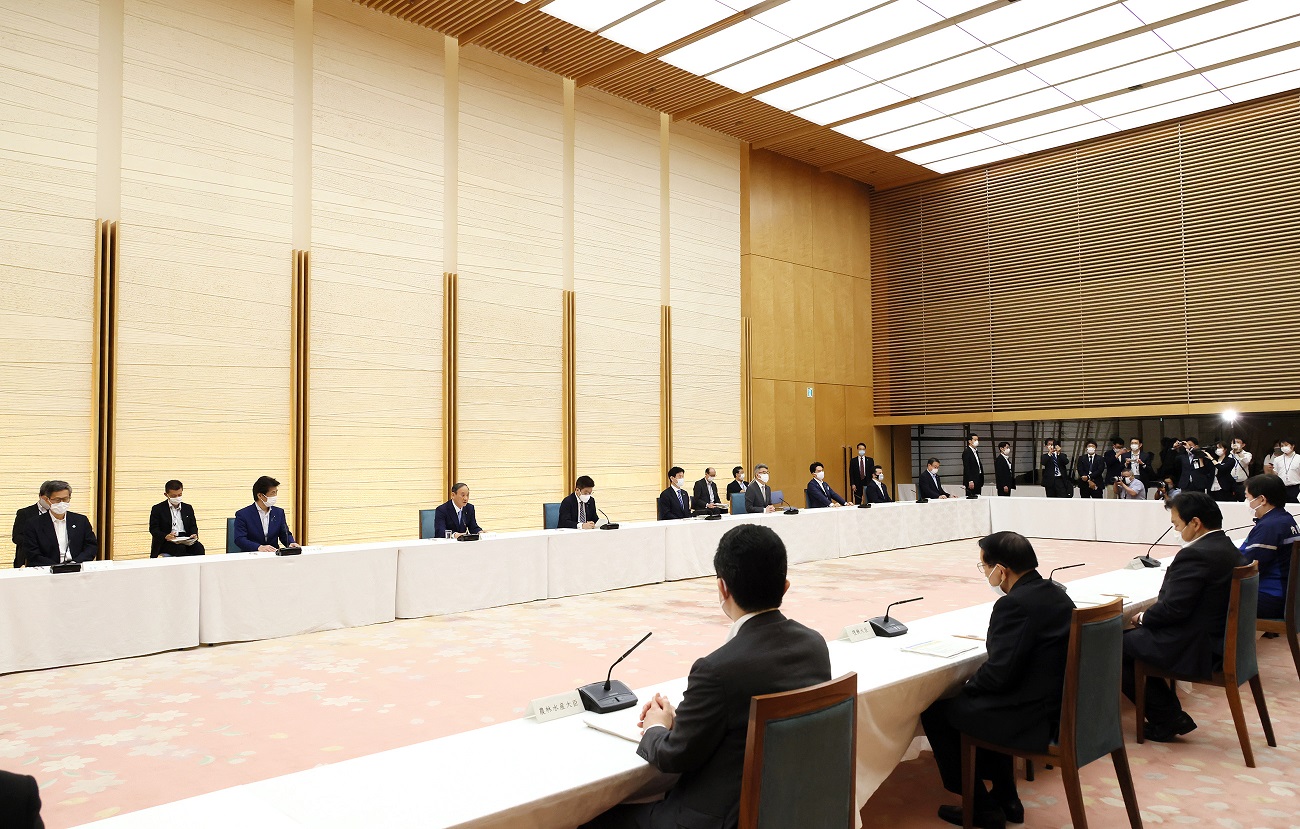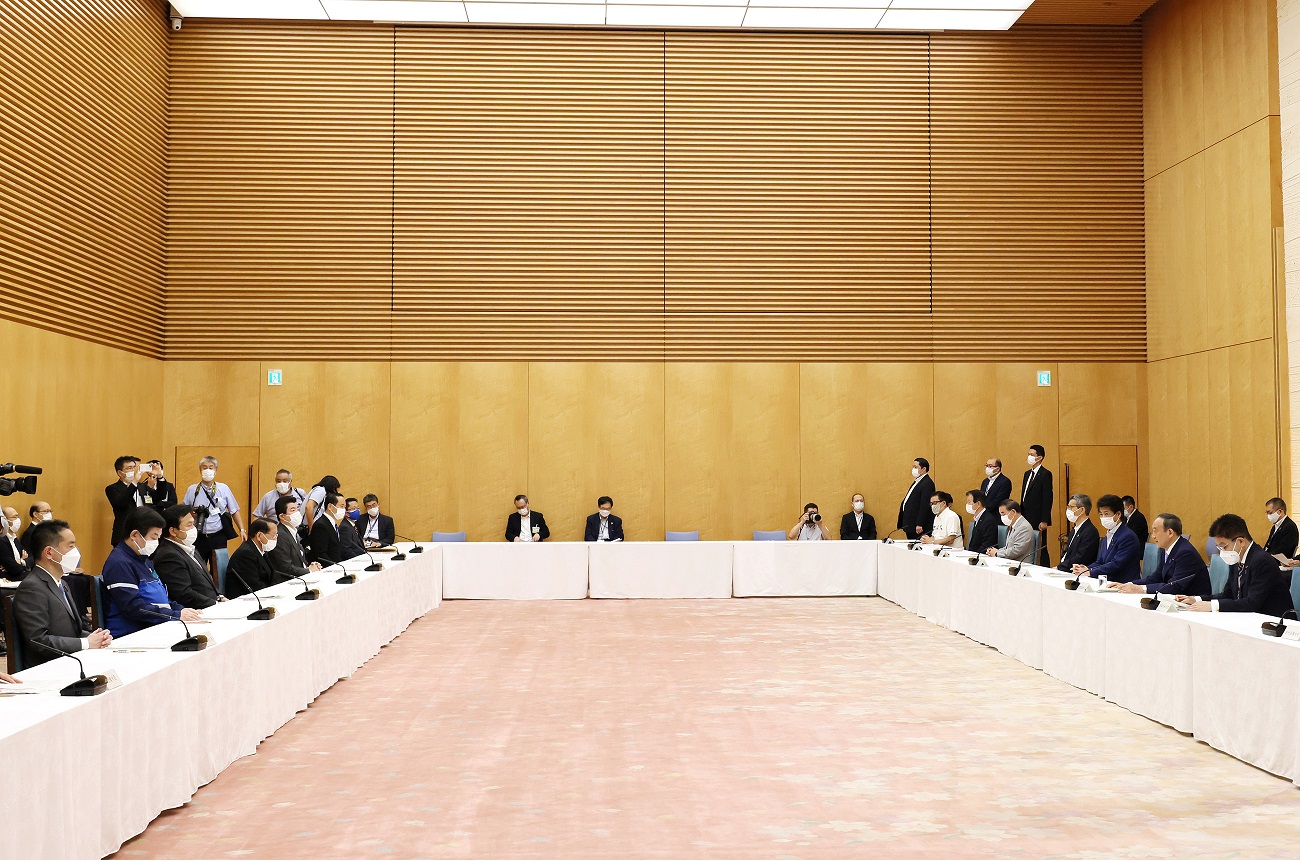Home > News > The Prime Minister in Action > August 2021 > 73rd Meeting of the Novel Coronavirus Response Headquarters
The Prime Minister in Action
73rd Meeting of the Novel Coronavirus Response Headquarters
August 17, 2021
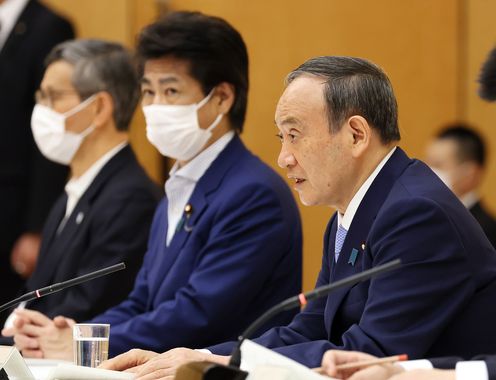
Photograph of the Prime Minister making a statement (1)
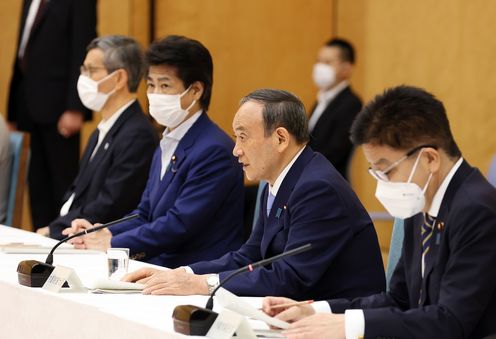
Photograph of the Prime Minister making a statement (2)
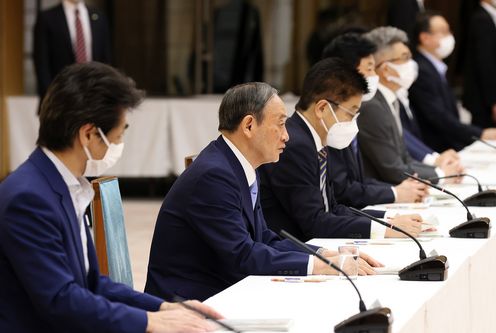
Photograph of the Prime Minister making a statement (3)
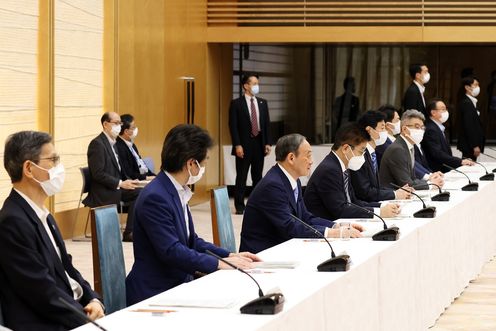
Photograph of the Prime Minister making a statement (4)
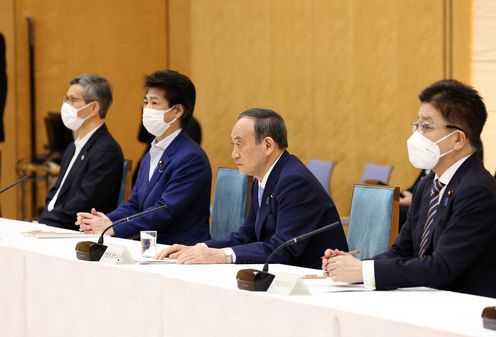
Photograph of the Prime Minister making a statement (5)
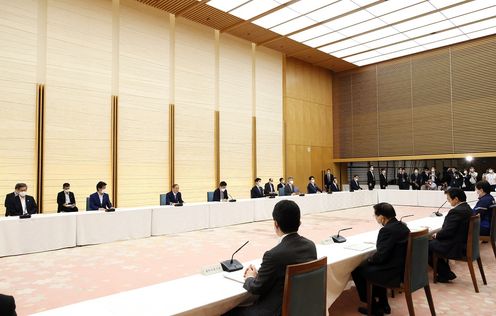
Photograph of the Prime Minister making a statement (6)
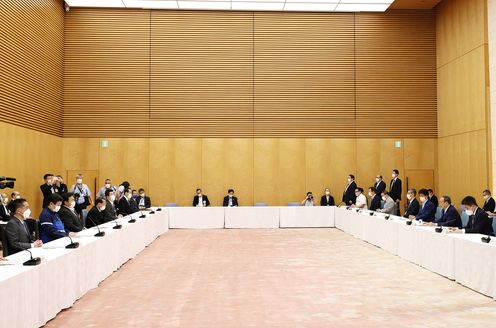
Photograph of the Prime Minister making a statement (7)
[Provisional Translation]
On August 17, 2021, the Prime Minister held the 73rd meeting of the Novel Coronavirus Response Headquarters at the Prime Minister’s Office.
At the meeting, the participants discussed the response to the novel coronavirus disease (COVID-19).
Following the discussion, the Prime Minister said,
“The extremely infectious Delta strain is raging around the world, and Japan has continued to see an unprecedented expansion of infections. The number of patients with severe symptoms has risen sharply, and the medical system is in a very severe state, especially in the Greater Tokyo area.
In light of these circumstances, for the period from August 20 to September 12, we have decided to add Ibaraki, Tochigi, Gunma, Shizuoka, Kyoto, Hyogo, and Fukuoka Prefectures to the areas subject to the declaration of a state of emergency and newly apply priority measures to prevent the spread of disease in Miyagi, Toyama, Yamanashi, Gifu, Mie, Okayama, Hiroshima, Kagawa, Ehime, and Kagoshima Prefectures. We have also made the decision to extend the declaration of the state of emergency in six prefectures and priority measures in six other prefectures until September 12, respectively.
We will proceed with countermeasures, with the establishment of medical systems, thorough implementation of infection prevention measures, and vaccinations as three pillars. Our highest priority is the establishment of medical systems to save the lives of patients. We will secure hospital beds to ensure that those with severe symptoms are hospitalized properly and as many facilities to accommodate patients as possible, including those for recuperation in hotels. We will enhance medical consultations via telephone, among other measures, to make sure that we can make contact with patients recuperating at home, who have rapidly increased in number, without fail and establish a system to administer oxygen, including oxygen stations. We will actively use neutralizing antibody drugs, or breakthrough medicines to prevent patients from developing severe symptoms, not only in hospitals, but also in hotels as temporary medical facilities.
As for measures to prevent infections, we will work together with local governments to call for imposing capacity limitations for department stores, shopping malls, and other facilities. In addition, we request a 50 percent reduction in outings to crowded places and a 70 percent reduction in the number of commuters through teleworking.
Vaccines have proved highly effective against the Delta strain as well, in terms of the prevention of the onset of symptoms and development of severe symptoms. With 85 percent of the elderly already receiving their second dose, we will focus on inoculations of people in their 40s and 50s, who are second to elderly people in the risk of developing severe symptoms, and vaccinations of younger generations.
The Government will work as one to thoroughly carry out countermeasures to overcome this crisis and protect the lives and safety of the people. I ask each minister to go all out to tackle the matter.”

